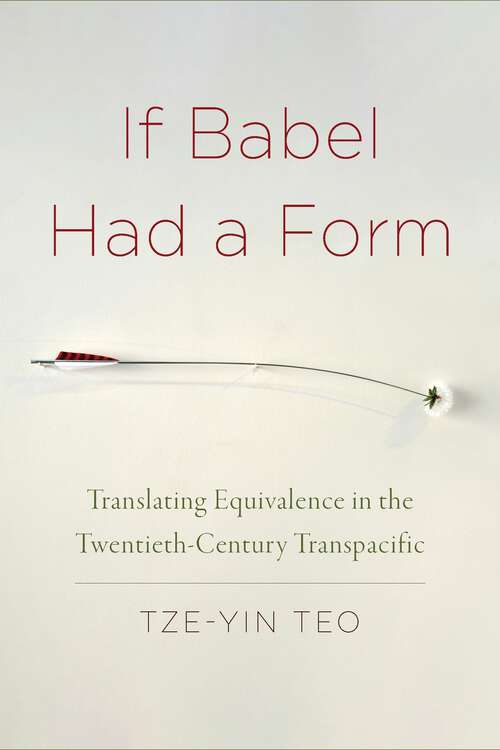
If Babel Had a Form: Translating Equivalence in the Twentieth-Century Transpacific
Asian history, Criticism, Philosophy
Synthetic audio, Automated braille
Summary
“The likeness of form between Chinese and English sentences,” writes the American Sinologist Ernest Fenollosa around 1906, “renders translation from one to the other exceptionally easy.” If Babel Had a Form asks not if his claim may be true, but… what its phantasmic surprise may yet do. In twentieth-century intersections of China and Asia with the United States, translations did more than communicate meaning across politicized and racializing differences of language and nation. Transpacific translation breached the regulative protocols that created those very differences of human value and cultural meaning. The result, Tze-Yin Teo argues, saw translators cleaving to the sounds and shapes of poetry to imagine a translingual “likeness of form” but not of meaning or kind.At stake in this form without meaning is a startling new task of equivalence. As a concept, equivalence has been rejected for its colonizing epistemology of value, naming a broken promise of translation and false premise of comparison. Yet the writers studied in this book veered from those ways of knowing to theorize a poetic equivalence: negating the colonial foundations of the concept, they ignited aporias of meaning into flashpoints for a radical literary translation. The book’s transpacific readings glean those forms of equivalence from the writing of Fenollosa, the vernacular experiments of Boxer Scholar Hu Shi, the trilingual musings of Shanghai-born Los Angeles novelist Eileen Chang, the minor work of the Bay Area Korean American transmedial artist Theresa Cha, and a post-Tiananmen elegy by the exiled dissident Yang Lian. The conclusion returns to the deconstructive genealogy of recent debates on translation and untranslatability, displacing the axiom of radical alterity for a no less radical equivalence that remains—pace Fenollosa—far from easy or exceptional.Ultimately, If Babel Had a Form illuminates the demanding force of even the slightest sameness entangled in the translator’s work of remaking our differences.